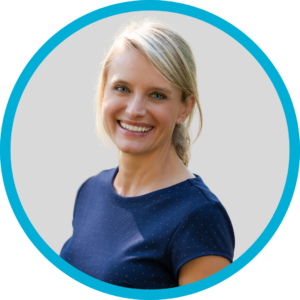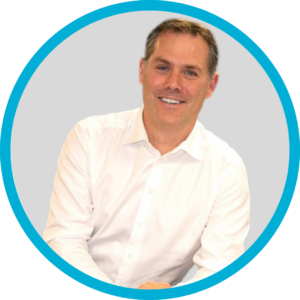Meet clinical advisors Dr. Sian Shuel and Dr. Christian Finley
April 25, 2024
A brief conversation with two accomplished health leaders on what drives them in their work and how they became involved with the Partnership.
From prevention to screening, diagnosis, treatment and beyond, there are many different touchpoints where people in Canada interact with the healthcare system when it comes to cancer. The Canadian Partnership Against Cancer (the Partnership) benefits from the expertise and guidance of our clinical advisors to assess and help design initiatives that advance the Canadian Strategy for Cancer Control.
We spoke with two advisors* to learn about their work, how they came to be involved with the Partnership and why equity matters in health care.
Dr. Sian Shuel

When we identify inequities and focus on building equitable access, the health and cancer care experience of all people in Canada are positively impacted.
– Dr. Sian Shuel
Dr. Shuel started her career as a rural family physician and community general practitioner in oncology (GPO). She went on to work as part of a palliative care team, earning her certificate of Added Competence in Palliative Care. She is currently the Medical Education Lead for BC Cancer Primary Care Program’s Family Practice Oncology Network and works as a GPO at BC Cancer Abbotsford.
Dr. Shuel has served as an advisor with the Partnership since 2022.
Dr. Christian Finley

This [lung cancer screening] work couldn’t have been done by anyone else but the Partnership, which has such a huge and vital mandate for all cancer care in Canada.
– Dr. Christian Finley
Dr. Christian Finley is a thoracic surgeon at St. Joseph’s Healthcare in Hamilton, and a professor at in the Department of Surgery (Division of Thoracic Surgery) at McMaster University. He is the Lung Cancer Lead at the International Cancer Benchmarking Partnership and is the Clinical Lead for Lung Cancer Screening for Ontario. He is also an advisor on lung cancer screening for the Canadian Task Force on Preventive Health Care. Dr. Finley co-founded and leads the national quality improvement project for Thoracic Surgery. Dr. Finley has led many initiatives that have won awards for quality and patient-centered care.
Dr. Finley has served as an advisor with the Partnership since 2012.
The interviews below have been edited for clarity and length.
What drew you to health care initially?
Dr. Shuel: My life actually started with a medical emergency and in a way, working in health care is a way of expressing my sense of gratitude for the care that I received – to give back and make a difference in other people’s lives.
My father was also a rural family physician and worked as a general practitioner in oncology. Watching him through his life, he always absolutely loved what he did and so I just wanted part of that for myself.
Dr. Finley: I did engineering first, and then ultimately went into medical school. I always liked solving problems and fixing things, and engineering fit that bill nicely. Surgery is a very practical, hands-on way of dealing with issues, and I have enjoyed it ever since.
What drew you to your specific practice within medicine?
Dr. Shuel: It’s been a bit of a journey. I was drawn to family medicine because of the ongoing relationships that you have with patients and the opportunities to work alongside them from birth through life and end-of-life care.
So, I worked as a family physician in Vancouver Island, which was interwoven with my work as a GPO. The GPO work was another opportunity for those meaningful patient interactions in a time of life which can be difficult for a lot of people.
Dr. Finley: I’m a third-generation thoracic surgeon – my grandfather was a thoracic surgeon, so was my dad. I think I’m the only one in the world with that specific professional lineage. We’ll see if any of my children follow my footsteps.
How did you get involved as a clinical advisor for the Partnership?
Dr. Shuel: A colleague from Ontario forwarded the call-out from the Partnership for the role of clinical advisor in the models of care initiative and this was the first time I had heard about it. I went to the Partnership website to understand the program better, as well as the other work that the Partnership was doing in terms of working with partners to improve cancer care experiences for all people in Canada. I found all of this work inspiring and wanted to be part of it.
I thought my experience as a family physician and GPO in the rural area and a palliative care consultant, along with my medical education role within BC Cancer, would mean that I have knowledge to contribute within the clinical advisor role for the Partnership.
Dr. Finley: I started working as a thoracic surgeon in Hamilton in 2010 and then early on I started working in synoptic operative reporting. I noticed that the Partnership was doing the same and so ended up working with the Partnership on a project related to synoptic operative reporting. The Partnership then released a call for proposals for work on high-risk resource intense cancer surgery, which I submitted to and won.
I worked on that for about a year and a half, and then I was invited to work as an expert lead and from that point on, I worked in the Partnership office once a week for five to six years, working on national standards, clinical benchmarking and all sorts of special reports. We ultimately came up with an action plan for cancer surgery in Canada and it landed right in the beginning of the pandemic.
What has the experience been like so far as an advisor?
Dr. Shuel: For me, it’s highlighted what a team can achieve when we come together to identify needs within the cancer system and ways to help meet them. The focus on meaningful patient engagement and the process of supporting through the development and implementation phases of initiatives like the models of care toolkit has been rewarding. I’ve learned a lot from staff at the Partnership, partners across Canada and my fellow advisors. Everyone brings their own perspective which has been instrumental in my learning and growing as we support subsequent projects.
Dr. Finley: I’m happy that I was able to help define those synoptic reporting national standards we put together because we had to bring people together and get consensus. Of the more recent initiatives, I found the lung cancer screening work very valuable, and it’s something I really advocated for. This work couldn’t have been done by anyone else but the Partnership, which has such a huge and vital mandate for all cancer care in Canada.
Why is health equity a core component in high-quality and innovative models of care?
Dr. Shuel: When we identify inequities and focus on building equitable access, the health and cancer care experience of all people in Canada are positively impacted.
Health equity implications are day-to-day, real stories. For example, as a rural family physician or GPO, if I want a test or my patient needs to be seen by a subspecialist, what does that mean for the patient? Will there be travel or financial implications? Are they able to get time off work? Do they have childcare? How do we assess and balance these costs? Is there opportunity for someone within the community who can take on a specialized role to meet these needs? For example, GPOs in rural communities helping ensure equitable access to systemic therapy closer to home. It’s the significant role these stories and equity issues play that motivates me to help remove these barriers in cancer care.
Dr. Finley: Consider the example of lung cancer screening, and how the Partnership is looking at ways in which equity impacts this work. When I run the clinic in Brantford and St. Catharines, there will be those who choose not to treat for lung cancer because they have to take care of their spouse, or they don’t have enough money, or they can’t make it to the appointments because there is no public transit between Brantford and Hamilton (where some imaging is based). So, for someone who doesn’t have a car, they basically choose not to get treatment.
“Vulnerable” or “equity-denied” populations is a term you see when looking at high-level statistics, but for me it’s an everyday interaction, and a result of intersecting systemic inequities. You’re sending a social worker to find someone who is unhoused, and now I have a patient with cancer who has no home, and I have to find a way to get them treatment and a place to live.
So, the implications of health equity are day-to-day, real stories for my patients and someone like me, and that’s what motivates me to remove these barriers in cancer care.
What are you looking forward to in 2024?
Dr. Shuel: Since spring is here, I’m looking forward to cheering my boys on as they play baseball, spending time in nature and watching my dahlias grow.
From a work standpoint, there are projects that we’ve been helping partners plan and we’re now moving into the implementation phase. I’m really excited to see how all this groundwork is going to translate into meaningful changes as these projects go live.
Little bit closer to home, my home province, British Columbia, launched a 10-year cancer action plan last year. There are components relevant to primary care, as well as equitable access to care, woven throughout the plan and I’m looking forward to the potential opportunities this holds for patients, families and healthcare providers.
Dr. Finley: One of the things I’m most excited about right now is that we’re able to identify that lung cancer is the fastest improving cancer by survival rates of any cancer. The Partnership has done a tremendous job in supporting the rollout of lung cancer screening initiatives across Canada. I’m also working with the Canadian Cancer Society to put together a national strategy through which various partners can participate and come up with a way to level the playing field by geography and socioeconomic status. For instance, you may have a province with a 65 per cent survival rate for those with stage one lung cancer, but in a neighbouring one it’s 80 per cent. What do we need to do to bring up that rate? That’s one of the things I’m excited to tackle next.
There’s also the ongoing work of supporting the International Cancer Benchmarking Partnership. So, lots to look ahead to this year.
—
*Note: Carole Mayer, who also serves as clinical advisor at the Partnership, was unable to participate for this interview.
